Can I Use Bergamot Oil on My Face? Unveiling the Facts
Bergamot oil, an essential oil derived from the peel of the bergamot fruit, has been appreciated for its distinctive scent and various purported benefits for the skin. When it comes to facial application, we recognize the oil’s potential in skincare routines due to its reported anti-inflammatory and antibacterial properties which may assist in conditions like acne. However, we carefully consider the safety of this citrus oil on our skin, owing to its known photosensitivity risks, to ensure it’s used in a way that maximizes its benefits while minimizing any adverse effects.
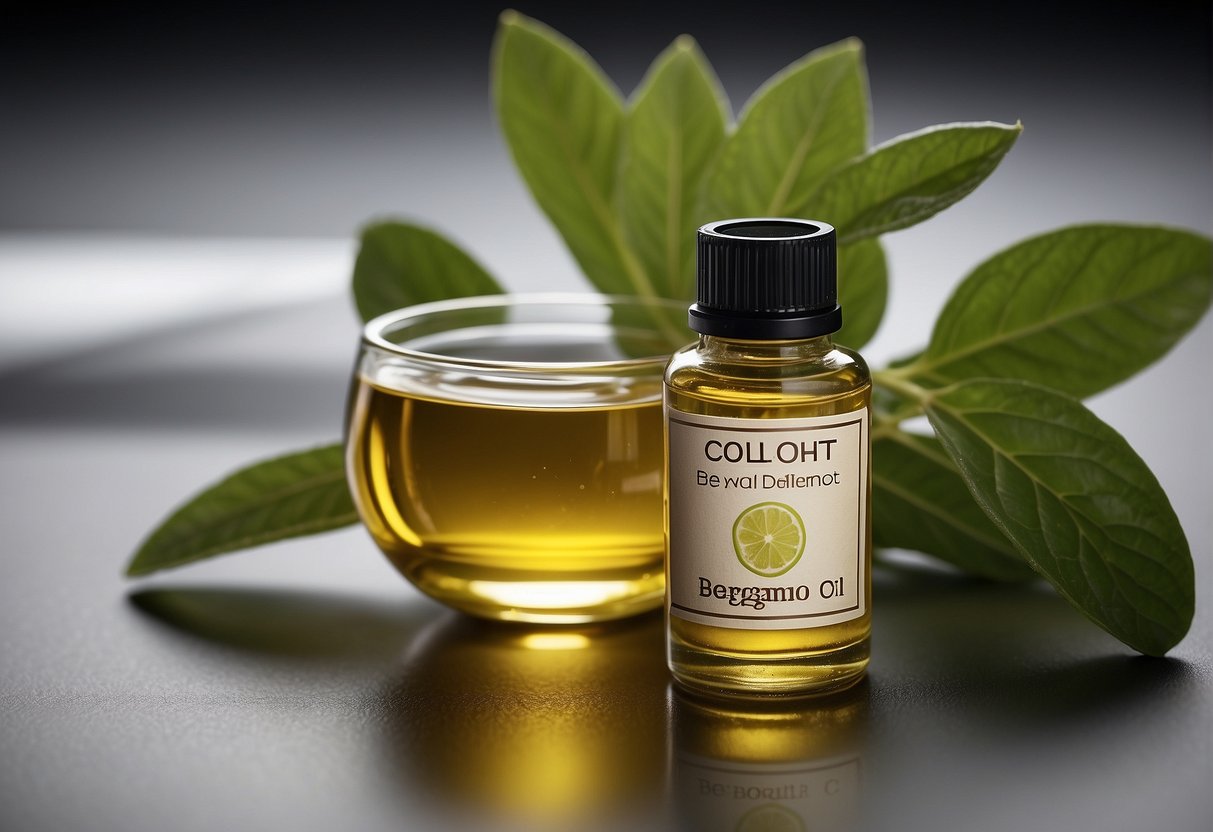
We can incorporate bergamot essential oil into our skincare regimen with mindfulness to its concentration and the context of its use. It is often diluted in carrier oils or combined with other skincare ingredients to enhance its efficacy while reducing the risk of skin irritation. As we explore the use on our face, we keep in mind the necessity of following proper guidelines and patch testing to ensure compatibility with our skin.
Beyond skincare, bergamot essential oil also finds its place in aromatherapy and as a fragrance component in perfumes and body products, highlighting its versatility. Within the scope of facial applications, our use is guided by a wealth of both traditional uses and emerging research that calls for a balanced approach to leverage bergamot oil's potential.
Key Takeaways
- Bergamot essential oil offers properties beneficial for skincare, particularly on the face.
- It's important to use bergamot oil safely due to its photosensitive nature.
- Dilution and proper application are key when integrating bergamot oil into skincare routines.
Benefits of Bergamot Oil for Skin
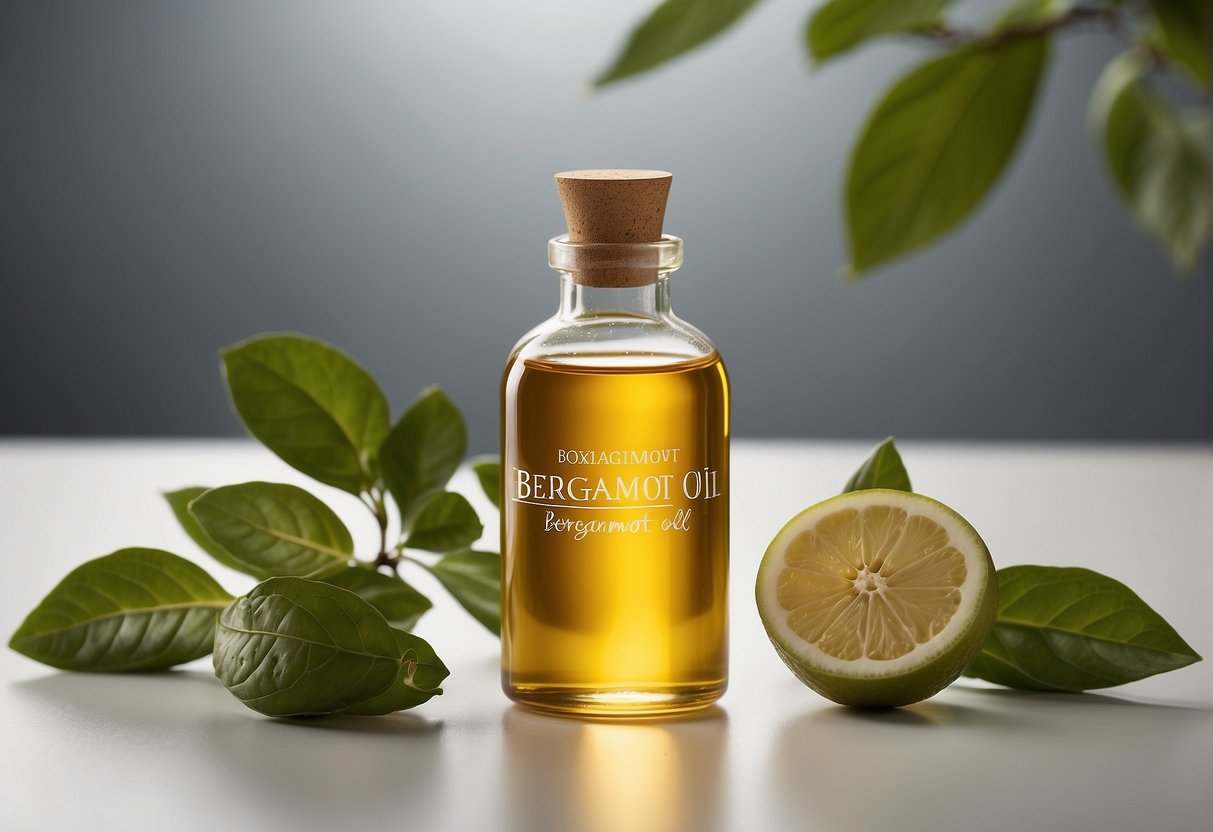
Bergamot oil, with its potent antibacterial and anti-inflammatory properties, is a valuable addition to skin care routines, especially for those combating acne and skin blemishes. Additionally, its role in aromatherapy can significantly impact mental health by promoting feelings of calm and reducing stress.
Antibacterial and Anti-inflammatory Properties
Research underscores bergamot oil's antibacterial capabilities, which make it beneficial in tackling harmful bacteria that can cause skin infections. Its anti-inflammatory effects are also crucial in reducing the redness and swelling associated with various skin conditions.
Acne and Skin Blemishes Treatment
We find bergamot oil particularly useful for those prone to acne. By helping to purify the skin and reduce inflammation, it can be an effective natural remedy in the prevention and treatment of skin blemishes. However, due to its psoralen content, it's essential to use bergamot oil that is either bergapten-free or to apply it in a manner that avoids exposure to sunlight.
Aromatherapy and Mental Health
The aromatic properties of bergamot oil can have a profound effect on mental health. Its use in aromatherapy is known to alleviate symptoms of stress, anxiety, and depression, contributing to an overall sense of well-being. This, in turn, can foster a more restful sleep and promote positive feelings, which are beneficial for maintaining both mental health and skin health.
Using Bergamot Oil Safely
When incorporating bergamot oil into our skincare routine, we must practice caution to avoid adverse reactions. Each component of safe usage, from conducting a patch test to understanding phototoxicity, plays a vital role in ensuring we benefit from the oil without harm.
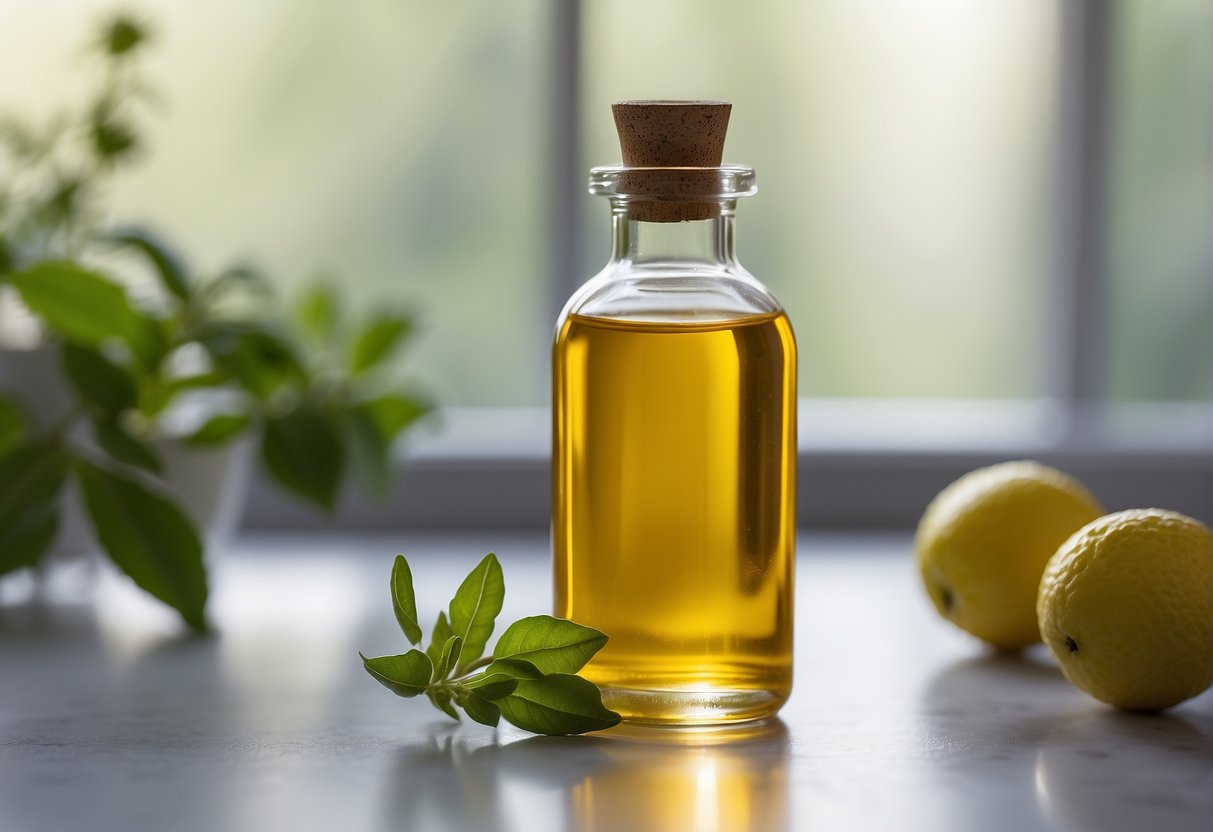
The Importance of a Patch Test
Before applying bergamot oil topically, we always perform a patch test. This involves applying a small diluted amount of bergamot oil to a discreet skin area. Sensitive skin can react negatively, and a patch test helps predict larger skin reactions.
Dilution with Carrier Oils
We never apply bergamot oil directly to our skin without diluting it first. Dilution is necessary to prevent skin irritations. Suitable carrier oils, such as jojoba oil or coconut oil, mix well with bergamot oil, generally at a ratio of 1 drop of bergamot oil to 1 teaspoon of carrier oil for safe application.
Understanding Phototoxicity
Bergamot oil contains compounds that can become phototoxic under sunlight exposure. To avoid this, we apply bergamot oil in the evening or use a sunblock if daytime use cannot be avoided. We avoid UV exposure for at least 12 hours after applying bergamot oil.
Integrating Bergamot Oil into Your Skincare Routine
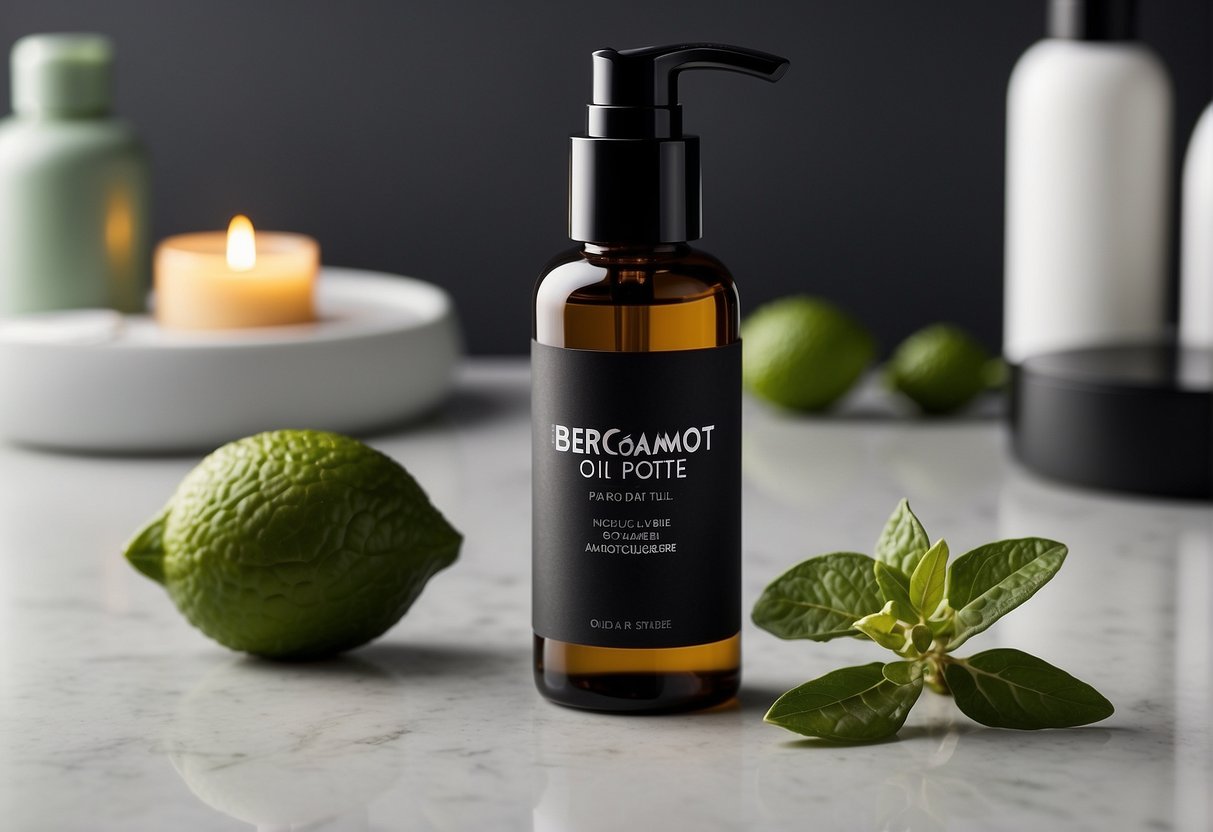
We understand that incorporating bergamot oil into a skincare regimen can provide a natural and fragrant approach to achieving healthier skin. It’s essential to use it properly for maximum benefits while minimizing potential skin sensitivity.
As a Spot Treatment or Additive
When utilizing bergamot oil as a spot treatment, we recommend diluting it with a carrier oil, such as jojoba or sweet almond oil, before applying it directly to the skin. This can be especially beneficial for oily skin types, as bergamot has cleansing properties. A ratio of one drop of bergamot oil to one teaspoon of carrier oil helps manage its strength for topical application.
In Cleansers and Body Washes
By adding a few drops of bergamot oil to our cleansers and body washes, we introduce a nourishing element to our daily skincare products. Its natural properties can contribute to a refreshed and clean feeling. Be mindful of the quantity—overuse can lead to skin irritation, especially on sensitive skin.
When to Apply Bergamot Oil
For best results, applying bergamot oil infused products during our evening skincare routine is preferable, as the oil can make skin more sensitive to sunlight. We must ensure to wash it off thoroughly if used in the morning, and always apply sunscreen to protect our skin from UV rays. Diluting bergamot oil before use in any skincare routine is crucial for safe application.
Common Combinations with Bergamot Oil
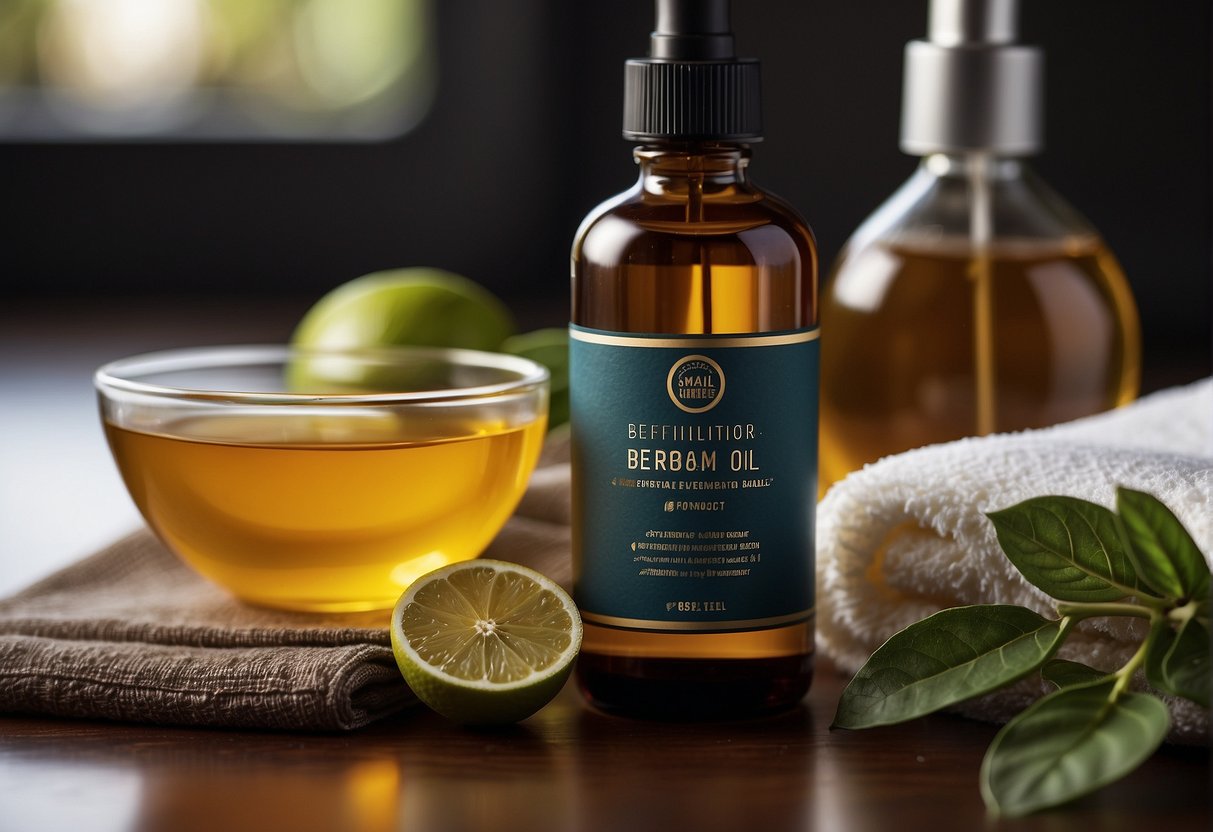
Bergamot oil, prized for its citrusy and subtly floral aroma, is often blended with other essential oils to enhance its natural fragrance and therapeutic properties. When selecting combinations, it's vital to consider the intended benefit, be it for aroma or skin care.
Blending for Aromatic Benefits
We know that the unique scent of bergamot oil is sought after for creating pleasing aromatic experiences. Lavender oil is a favorite pairing due to its soothing floral notes that can complement the fresh, citrusy profile of bergamot. Together, these scents are commonly found in perfumes, air fresheners, and colognes. Tea tree oil, while more medicinal in fragrance, can offer a robust, earthy aspect to the blend, potentially enhancing the overall invigorating effect of the aroma.
-
Aromatic Blend Examples:
- Citrusy Floral: Bergamot + Lavender
- Earthy Citrus: Bergamot + Tea Tree
Synergy with Other Skin-Healing Oils
For applying to the skin, we use bergamot oil in combination with other skin-supportive essential oils. Tea tree oil is known for its antimicrobial properties, making it an excellent complement for dealing with skin blemishes when mixed with bergamot oil. Oils like frankincense are noted for their skin-healing properties, and can be synergistically blended with bergamot oil for enhanced effects on skin health.
-
Skin Care Blend Examples:
- Antimicrobial: Bergamot + Tea Tree Oil
- Restorative: Bergamot + Frankincense
Beyond Skincare: Other Uses of Bergamot
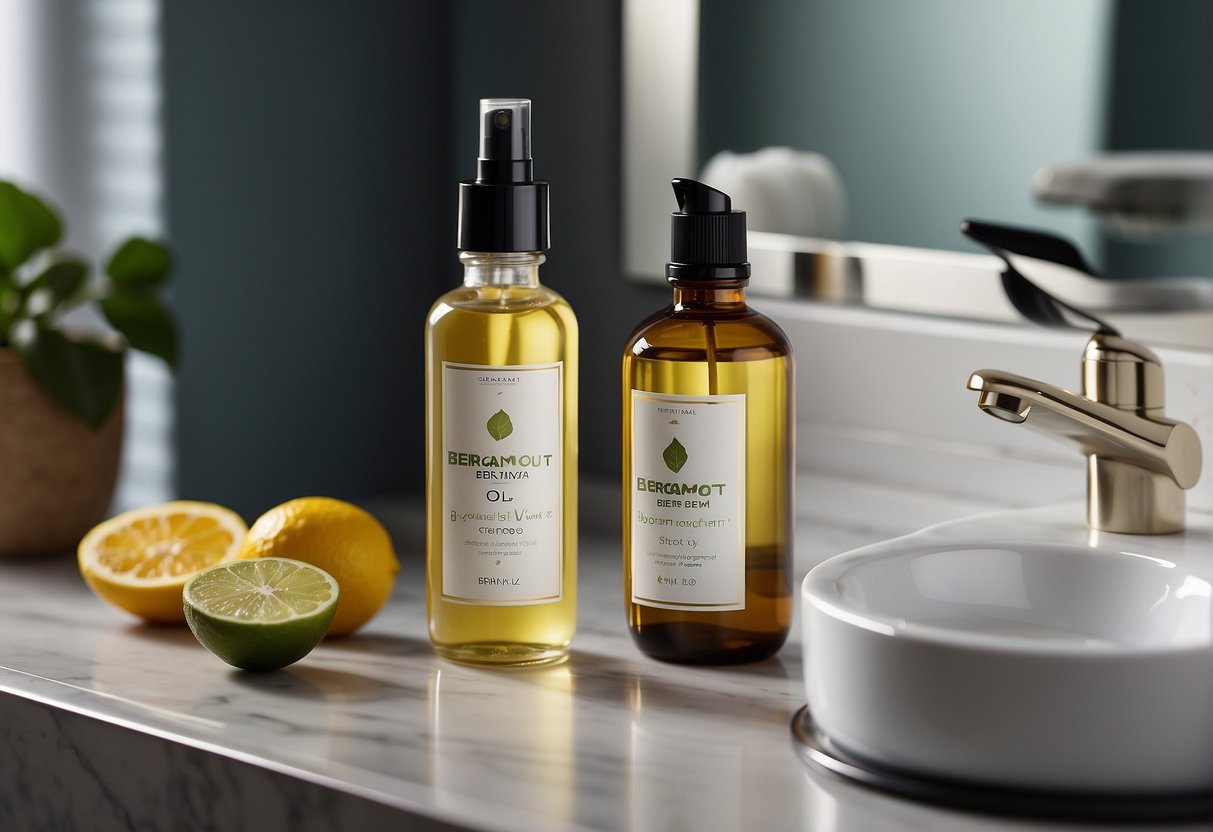
Bergamot oil, renowned for its citrusy fragrance and various properties, extends its utility far beyond just skincare applications. We explore its benefits in hair care products and aromatic uses throughout the home.
Bergamot in Hair Products
In the realm of hair care, bergamot oil is a celebrated ingredient in shampoos and conditioners. We know it for its ability to impart a clean, fresh scent and contribute to the overall health of the scalp and hair. It's not just about fragrance—bergamot oil is believed to support hair health and could have a positive influence on hair growth.
Aromatic Uses in the Home
Bergamot's uses transcend personal care products; it's also a star player in creating a pleasant ambiance at home. When added to a diffuser, bergamot essential oil disperses an uplifting aroma that can help alleviate stress and fatigue. This same enticing aroma is what characterizes Earl Grey tea, where bergamot oil is used for flavoring, potentially enhancing mood and providing a refreshing experience.
Frequently Asked Questions
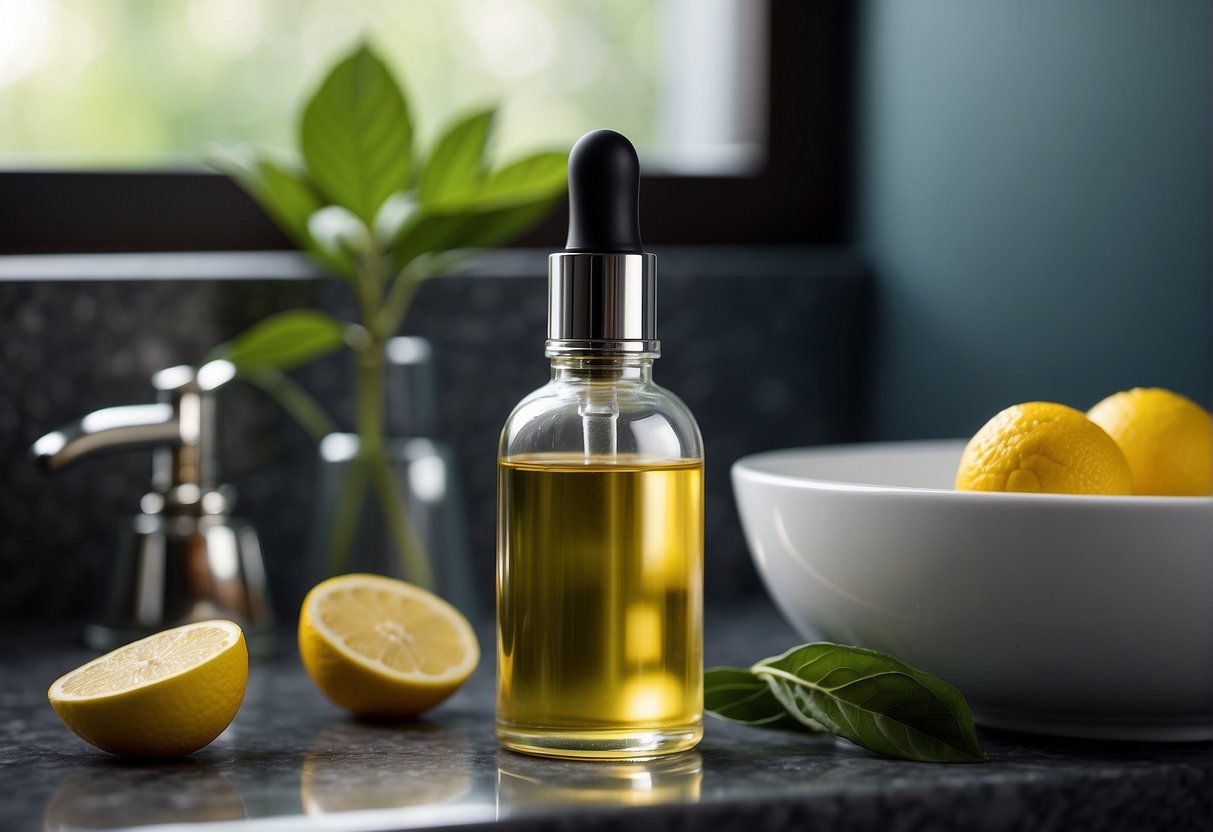
When incorporating bergamot oil into your facial skincare routine, it's crucial to understand both its benefits and potential skin reactions.
Is bergamot oil safe to apply on facial skin?
Bergamot oil can be applied to the face, but it should always be diluted with a carrier oil and patch tested for sensitivity. Being a citrus oil, bergamot may increase photosensitivity, so it's important to use sunscreen to protect the skin from UV rays after application.
Can bergamot essential oil help reduce the appearance of wrinkles?
Bergamot essential oil is known for its antioxidant properties, which can help combat free radicals that cause skin aging. Regular use may help in reducing the appearance of wrinkles, though it should be used with care as part of an anti-aging skincare regimen.
Does bergamot oil have properties that can brighten the complexion?
The citric acid found in bergamot oil is known for its brightening effects on the skin. It can contribute to a more even skin tone by promoting skin cell turnover and possibly lightening dark spots.
Will using bergamot oil on my face clog pores or cause acne?
Bergamot oil is considered non-comedogenic, meaning it is unlikely to clog pores. However, everyone's skin is different, and essential oils should be used with caution, especially if you have acne-prone or sensitive skin.
How can bergamot oil contribute to hair health when applied topically?
We recognize bergamot oil for its ability to revitalise the scalp and improve the health of our hair. When mixed with a shampoo or conditioner, it can add shine and possibly aid in managing scalp conditions due to its antibacterial properties.
Are there any specific benefits of using bergamot oil for greying hair?
Although there is no evidence to suggest that bergamot oil can reverse greying, its nourishing properties may improve the overall condition and appearance of grey hair, giving it a healthier and more vibrant look.